NUM Leadership Conference – Capacity Development for Transformation
From ‘Big State’ to ‘Smart State’
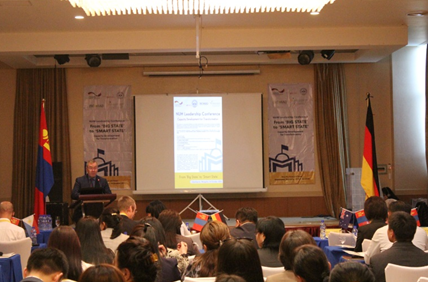
On October 14th, the School of International Relations and Public Administration hosted in cooperation with the Integrated Mineral Resource Initiative (IMRI) of the `Deutsche Gesellschaft fuer Internationale Zusammenarbeit’ (GIZ), the Institute for Communal Sustainability and Development (INCOSAD), and the German Research Institute for Public Administrative Sciences Speyer the second edition of the NUM Leadership Conference – Capacity Development for Transformation.
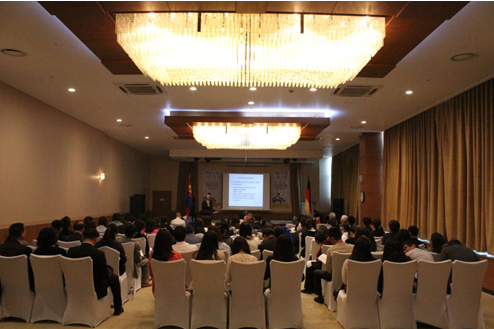
This year’s NUM Leadership Conference – Capacity Development for Transformation, moderated by Dr. Dr. h.c. Stefan Hanselmann, Director of GIZ IMRI, and Prof. Dr. Burmaa Natsag, Head Organizer of the NUM Leadership Conference, was held under the title `From Big State to Smart State’. The title of the conference was also the title of the keynote speech by Prof. Dr. Jan Ziekow, Director of the German Research Institute for Public Administrative Sciences and Professor at the German University for Administrative Sciences Speyer, which laid out important issues and solutions hereof in the path of reform of Mongolia’s public administration.
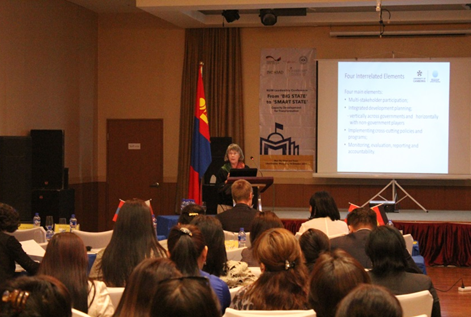
Professor Ziekow’s keynote address was followed by a talk given by Prof. Dr. Meredith Edwards AM, University of Canberra, on the challenges of Transformative Governance for Capacity Development and the involvement of citizens and multi stakeholder processes in public administration. After that, Christian Seiler, Research Fellow at the Institute for Communal Sustainability and Development, spoke about citizen engagement in the public administration using the example of the Extractive Industries Transparency Initiative. The morning session was completed by the speech of Dr. Martin Keydel, State University Karlsruhe, on Quality Management for Local Public Administrations, and Prof. Dr. Burmaa Natsag, School of International Relations and Public Administration, National University of Mongolia (NUM), who gave an input on the Role of Control in Decision Making Processes of Government.
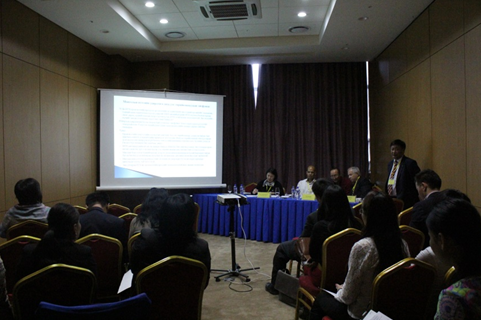
After lunch, the conference participants, comprising of civil servants, members from local administrations, faculty and students of the NUM, members of other universities, members of international organizations, and journalists, branched out into three different work streams. Work stream I – Leadership Accountability for Capacity Development was chaired by Professor Ziekow. After a short presentation by Prof. Dr. G. Tseren, NUM, on the topic of Developing Leadership Skills in Public Administration, the group went into extensive discussions whether it is possible to foster and develop leadership skills in the public administration. Work stream II – Towards an Integrated Approach to Capacity Development, chaired by Professor Edwards, was initiated by an input by Prof. Dr. Ch. Undram, NUM. on Higher Education in Mongolia. The third work stream, `Capacity Development at the Local and Regional Level’, took up the topics of decentralization in Mongolia and resulted in a lively debate after a breakout presentation by Prof. Dr. Ts. Batbold on Local Administration Structure and Improvement of Local Administrative Functions.
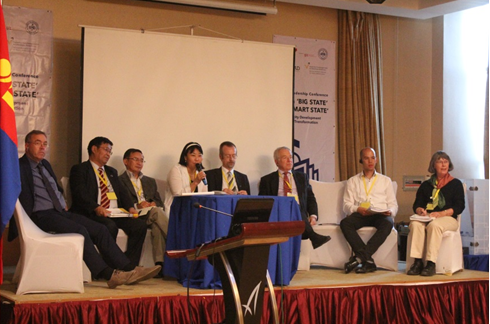
Following the work stream sessions, the conference participants came together to a panel session that rounded off the conference. After a short input by the rapporteurs summarizing the discussion and results of the work streams, conference participants had the chance to give their feedback and discuss the aforementioned topics and their implication for Mongolia’s transition and development. In general, the conference proved to be an interesting platform for dialogue and was met with acclaim by the participants and the School of International Relations and Public Administration hopes to be able to host the third edition of the NUM Leadership Conference next year.

